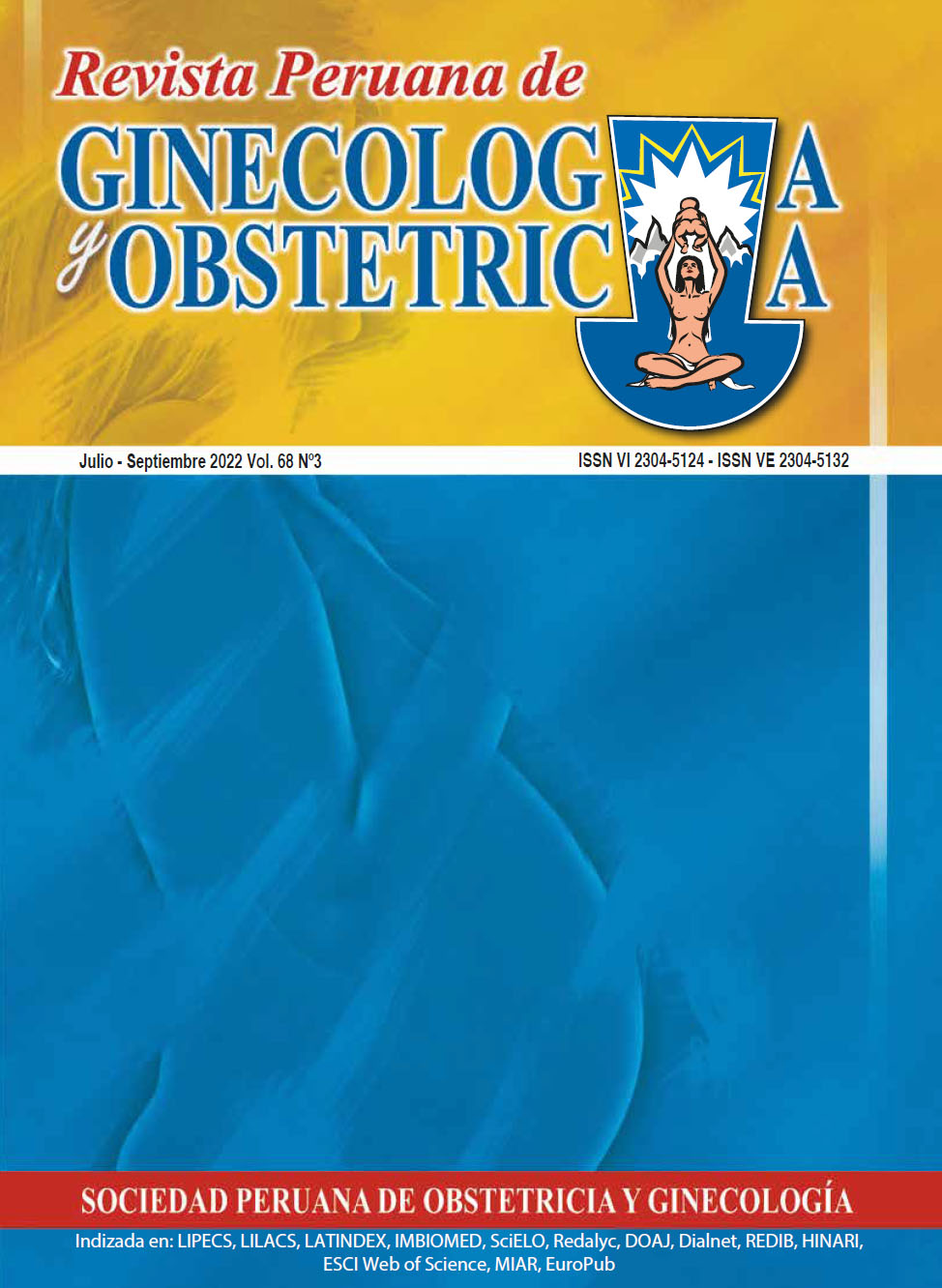Appendiceal goblet cell carcinoid tumor with endometrial metastasis
DOI:
https://doi.org/10.31403/rpgo.v68i2441Keywords:
Goblet cell carcinoid tumor, Appendix, Endometrium, Neoplastic metastasisAbstract
Goblet cell carcinoid tumor is an almost exclusive mixed neoplasm of the appendix
with neuroendocrine and mucinous differentiation. Endometrial metastatic
involvement by extragenital carcinomas, especially the signet ring cell type, is rare.
A case of appendiceal goblet cell carcinoid tumor with endometrial metastasis
is presented. This was a 70-year-old female patient who presented with genital
bleeding. The gynecological examination showed moderate red-brown genital
bleeding and hardened cervix. Endometrial biopsy reported nests of signet ring
cells. The provisional diagnostic impression was poorly differentiated carcinoma of
probable intestinal origin. During surgery, the uterus had a stony consistency, the
cecal appendix was fibrotic and thickened, and the omentum was thickened with
tumor nodules. Anatomical sections of the cervix and uterine body showed tumor
foci. In the cecal appendix, small clusters composed of goblet cells were found.
Immunostaining was positive for synaptophysin, CDX-2, EMA, CK20, focal CD56.
These findings confirmed the diagnosis of goblet cell carcinoid tumor, a tumor
characterized by infiltration of the appendiceal wall by small nests or cords of goblet
cells with intracytoplasmic mucin and focal expression of neuroendocrine markers.
These neoplasms have a more aggressive behavior than neuroendocrine tumors.
Endometrial metastasis is rare and can be mistaken for a primary signet ring cell
carcinoma. It should be considered as a differential diagnosis after other primary
tumors have been excluded.
Downloads
Downloads
Published
How to Cite
Issue
Section
License
Copyright (c) 2022 Eduardo Reyna-Villasmil, Martha Rondon-Tapia, Duly Torres-Cepeda

This work is licensed under a Creative Commons Attribution 4.0 International License.
Esta revista provee acceso libre inmediato a su contenido bajo el principio de que hacer disponible gratuitamente la investigación al publico, lo cual fomenta un mayor intercambio de conocimiento global.















